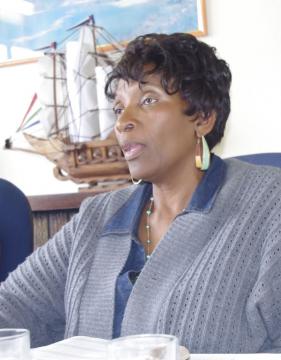53 per cent of Swazi women are unemployed
 Phindile Weatherson from SWEET said policies in the country were too stringent and made it difficult for entrepreneurs to start businesses.
Phindile Weatherson from SWEET said policies in the country were too stringent and made it difficult for entrepreneurs to start businesses.
MBABANE – Research conducted by SARFED has revealed that 53 per cent of Swazi women have no stable source of income.
SARFED, which stands for Sothern African Research Foundation for Economic Development, is focused on entrepreneurship, women and child development as well as public health matters.
It was also revealed that globally, only 38 per cent of registered companies were owned by women.
Speaking during a press conference, George Choongwa the Regional Coordinator and Country Organiser said the research that they had been conducting revealed that there is a need for empowerment when it comes to participation in business.
“That is why we found it necessary to facilitate a conference that will capacitate and empower women in the country,” he said. The COMESA Entrepreneurship and Women Empowerment conference which will take place on August 29 at Sibane Hotel, is one of the methods that SARFED and partners will use to address the dwindling entrepreneurship and shortage of women in the business sector.
Choongwa said participants during the upcoming conference will highlight the areas that will benefit women in society and participants will learn cost effective business methods.
Worked
He also said that since the organisation worked together with existing bodies in the country, some of the presentations during the conference will be from organisations such as SWEET, FSE, CANGO and their members, among others.
“We are expecting people with businesses as well as those who aspire to own businesses to attend,” he said. He also said there would be a E300 participation fee for people interested in attending.
Speaking on behalf of SWEET (Swaziland Women Economic Empowerment Trust) Phindile Weat-herson said they were glad to be a part of the upcoming conference as creating employment is also one of their goals.
Weatherson also said the future plans of the organisation include becoming a fully fledged financial institution. She also noted that one of the contributing factors to poverty in the country is that savings are not part of the Swazi culture. Furthermore, she requested that the policies in the business sector should not be too stringent such that they hinder investment and entrepreneurship within the country.




 del.icio.us
del.icio.us Digg
Digg